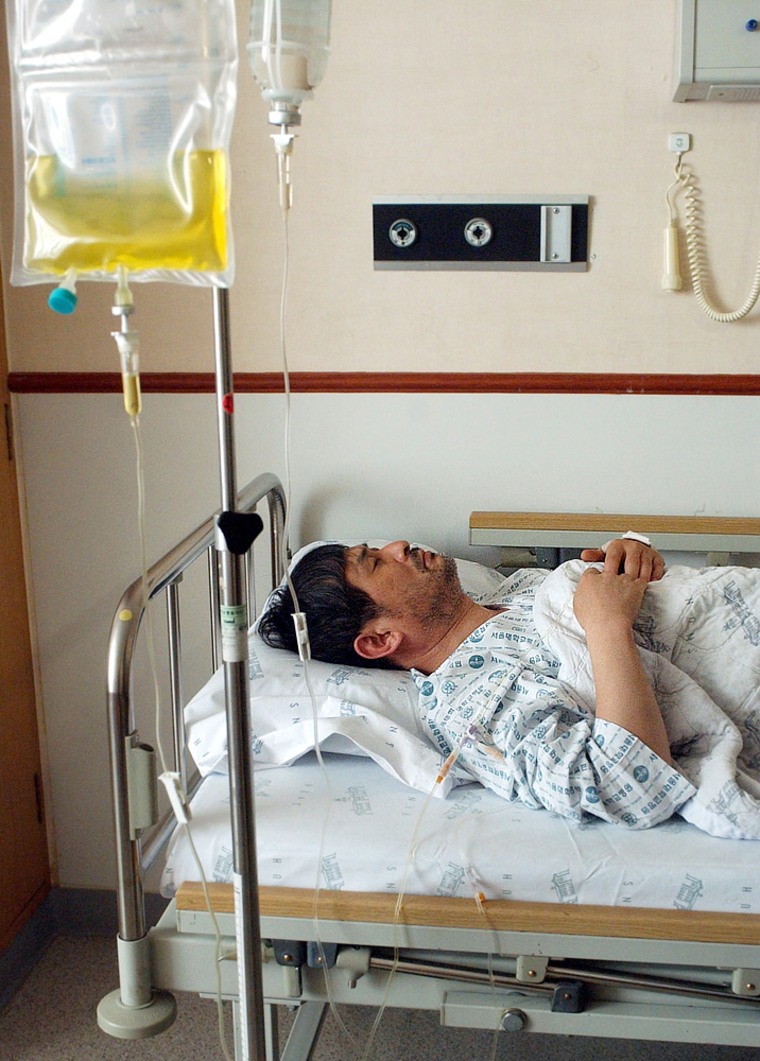One of the world's most celebrated stem cell scientists, who has been caught in a storm of controversy over ethical lapses in his work, was taken to a hospital suffering from exhaustion, a medical official said Wednesday.
In the United States, an influential science publication said there were no flaws in the findings of the scientist, Woo Suk Hwang, whose team made global headlines by developing tailored embryonic stem cells and producing the world's first cloned dog.
Hwang has been in seclusion since Nov. 24, when he apologized as he told a news conference that two junior women researchers had donated their eggs for his work and that he had not released information about the incident soon enough.
International science generally frowns on research associates donating key project components because of possible coercion.
Hwang was admitted to Seoul National University Hospital on Wednesday with symptoms including dramatic weight loss. He could be suffering from a stomach ulcer, the hospital official said.
"It is crucial he gets absolute rest," Seong Myung-hoon, the hospital official, said by telephone.
Hwang is considered a hero in South Korea for bringing the country to the global forefront of stem cell research and cloning. Support for him at home has grown only stronger since news of the ethical lapses prompted some international collaborators to pull out of projects with his team.
On Tuesday, the Washington-based journal Science issued a press release about certain items in the papers Hwang's team had published. But it said this did not change any findings.
The papers included the landmark study earlier this year about tailored stem cells developed by Hwang's team that could one day lead to implanting healthy cells with the same genetic material as a patient to replace cells damaged by ailments such as severe spinal cord injuries.
Science mentioned three items that needed clarification or had been corrected.
One was a table and another item concerned redundant pictures. The magazine said it was also correcting information presented in the papers that stated the human egg donors in Hwang's studies were unpaid volunteers.
Some donors in 2002 and 2003 received about $1,400, but South Korea had no laws at the time barring compensation for those women who donated their eggs for research.
Science said none of this cast doubt on the scientific outcome of Hwang's papers.
"We currently have no reason to believe that Dr. Hwang's primary scientific conclusion ... is in any way fraudulent or questionable," Science editor-in-chief Donald Kennedy was quoted in the release as saying.
